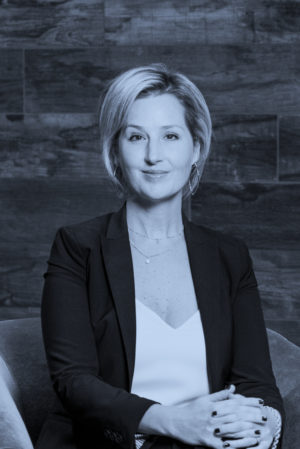
Last month, Rachel Moniz found herself in the lodging industry”™s spotlight during the 2023 Americas Lodging Investment Summit in Los Angeles. Moniz, a principal and chief operating officer for Norwalk-headquartered HEI Hotels & Resorts, was this year”™s recipient of the Paving the Way Award from the American Hotel and Lodging Association (AHLA) Foundation during its fifth annual Night of a Thousand Stars gala. The award honors a female hospitality company executive who has shown exemplary leadership skills that is recognized across the industry.
“Rachel is one of the rare individuals who makes an organization better not only by her own presence, but by the inspiration and devotion she instills in the people with whom she works and leads,” said Anna Blue, president of the AHLA Foundation, in announcing the award. “Under her leadership, HEI has seen tremendous growth in the luxury, lifestyle and independent hotel spaces, received notable industry awards and significantly improved overall performance.”
“Beyond the numbers and awards,” Blue added, “Rachel leads the HEI Women in Leadership Council. In the past three years, under Rachel”™s purview and with support of the senior leadership team, HEI has achieved over 25% gender parity at the GM level, and she didn”™t stop there. Along with other senior leaders, Rachel helped develop programs for diversity, equity & inclusion, associate service culture, and so much more. Personally, she has proven to be an inspiration to us all.”
Moniz stated she was unaware that she was nominated for award consideration, but add the greatest surprise was how she was put into the running for this tribute.
“What I found out later was members of my team from all different levels within the organization ”” whether it was at the corporate regional property level or just people that I have tried to sponsor throughout their careers ”” put together a video and send it to the AHLA to nominate me for this award,” she said. “So, it was really quite touching.”
Moniz added that it was “nice to be able to go to the ceremony ”” I had my entire team there, because without them engaging and executing so many of the initiatives together with me, we wouldn”™t have these programs. So, I wanted to make sure that they are recognized, too.”
Moniz joined HEI 14 years ago, albeit through circumstances beyond her control.
“I like to say that I came with a building,” she said. “I was the general manager at the Liberty Hotel in Boston and HEI bought the hotel. I got a call from Ted Darnall (the company”™s CEO), and he said he wanted me to join the corporate team ”” he had a very specific role for me.”
Moniz recalled that when she joined HEI, there were only three female general managers within the company, and she realized that she was “in a position where I could influence change.” With the green light from the corporate leadership, Moniz began to focus on bringing diversity to the company”™s managerial ranks ”” initially focusing on elevating more women to leadership roles and more recently expanding the focus to include other demographics who have traditionally been absent from managerial roles.
“I had our very first conference with the members of that community, that group who were taking the platform that we established for women in leadership and are applying it now to underrepresented racial minorities,” she said. “I had the most diverse group of people that all are on their way to becoming a general manager.”
Moniz stressed that bringing diversity to managerial positions ensures a future supply of leaders from areas that were previously untapped.
“These programs always start with a small amount of people,” she said. “The Women in Leadership Council had eight people when we I started it. Now we”™ve got over 50 ”” that doesn”™t mean we have over 50 general managers, we have over 50 people and half are existing general managers and the other half are women and leadership members who are looking to become general managers.”
Across the wider lodging industry, Moniz admitted she was unaware if “other hotel companies are focused on that gender parity at every level within their organization.” In order for that to occur, she observed, there would need to be “senior people that are supporting those programs.”
“You can”™t just say, ”˜Well, we have a committee and this is what we”™re doing,” she said. “For it to be effective, you need to get in the weeds, like I do, in order to expect change until it starts to take a life of its own. And then, you still need to be involved. But it is much easier when you have a lot of people that are part of those touch points and milestones.”



















